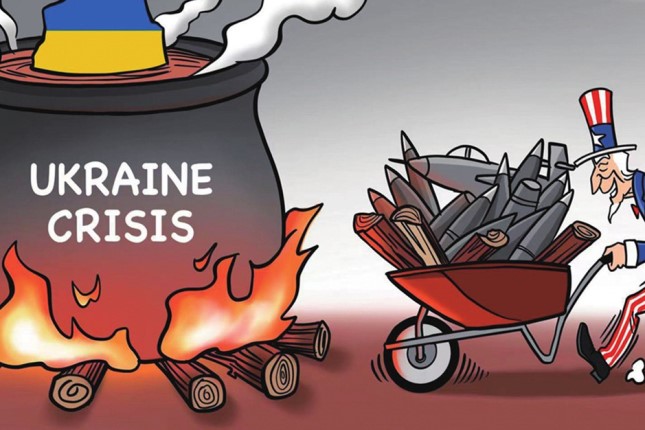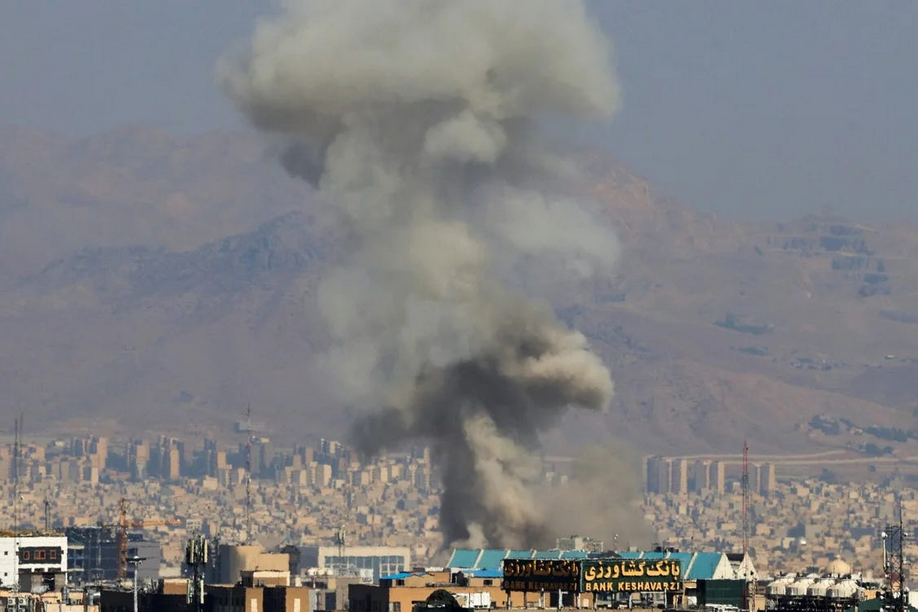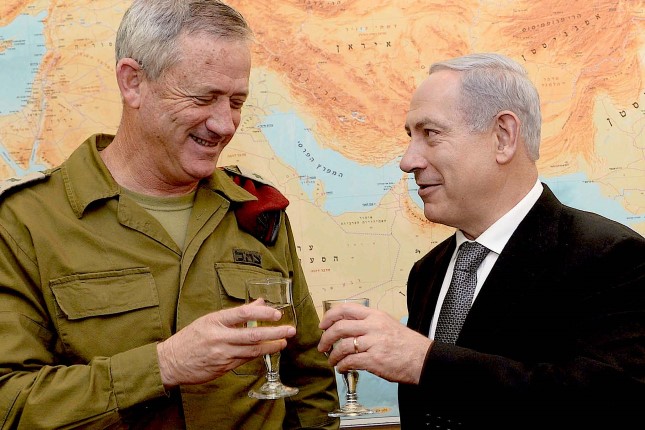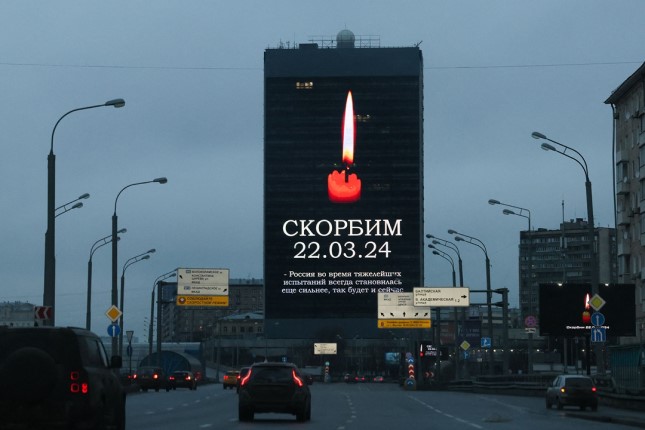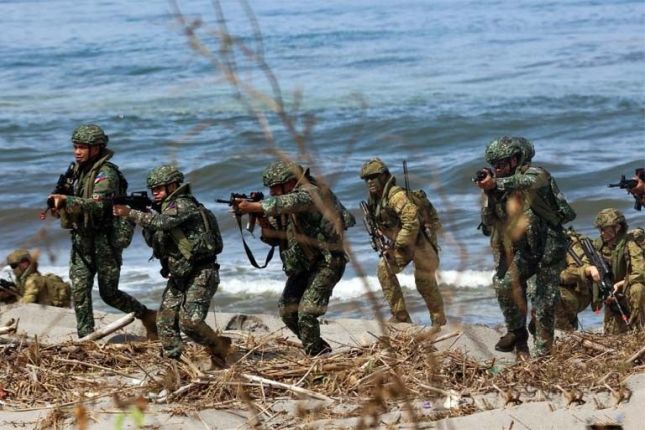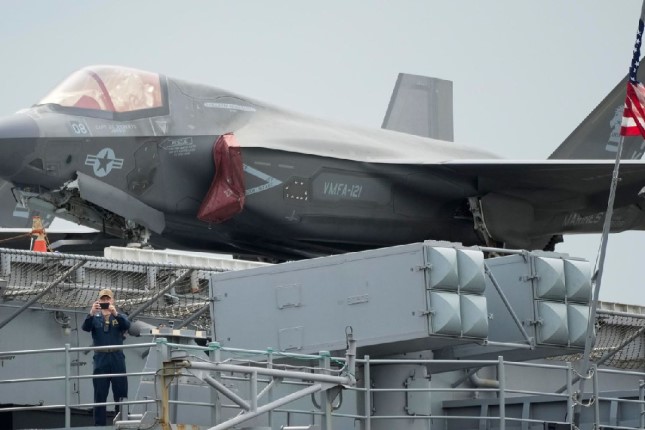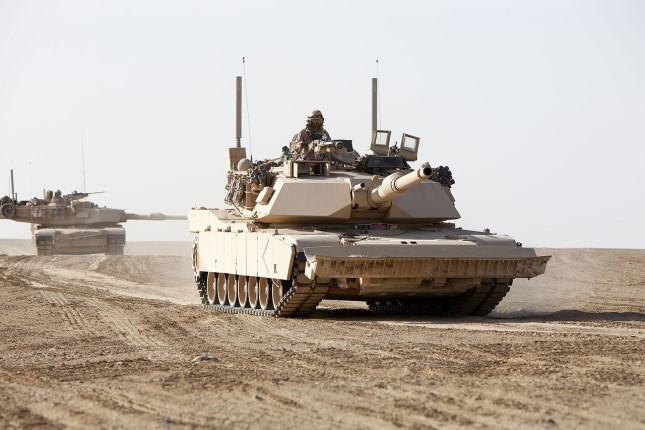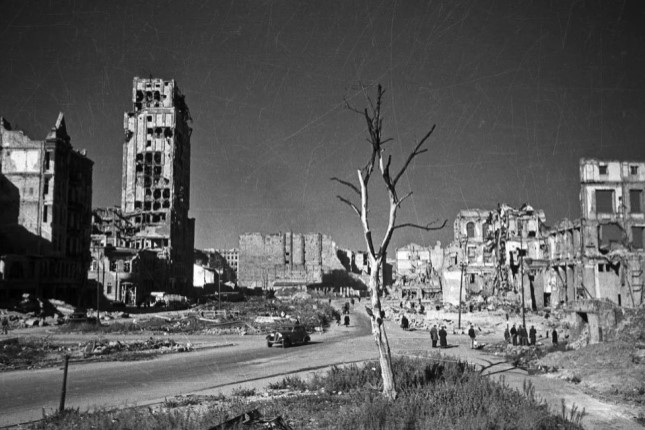The US Defense Department is purchasing AIM-120 AMRAAM advanced air-to-air missiles to support Ukraine in its fight against Russia, in addition to sending controversial armor-piercing munitions containing depleted uranium to Ukraine for the first time, according to US' Air & Space Forces magazine on Saturday. The US has already provided more than $43 billion in military support to Ukraine since the crisis started in February 2022.
The US continues to provide military assistance to Ukraine in order to perpetuate the Ukraine crisis and maximize its own political and economic interests. This move by the US has shown no bottom line and continues to pour fuel on the fire of the Ukraine crisis, completely ignoring the humanitarian crisis and the risk of terrorism that may worsen, analysts said.
"The US will supply Ukraine with AMRAAM aircraft missiles with a range of 160-180 km," said Yuriy Ihnat, a spokesperson for the Ukrainian Air Force, adding that the missiles "are more than enough to get Russian aircraft without entering the enemy air defense zone of destruction."
The controversial armor-piercing munitions containing depleted uranium, which could destroy Russian tanks, are part of a new military aid package for Ukraine set to be unveiled in the next week, according to Reuters. The munitions can be fired from US Abrams tanks that are expected be delivered to Ukraine in the coming weeks.
The use of depleted uranium munitions has been fiercely debated, with opponents like the International Coalition to Ban Uranium Weapons saying there are dangerous health risks from ingesting or inhaling depleted uranium dust, including cancers and birth defects.
The US and its NATO allies continue to provide military assistance to Ukraine in order to encourage the Ukrainian government to insist on military confrontation rather than negotiation, which has brought risks to the regional situation and led to the expansion of the scope of the conflict, Zhang Hong, an associate research fellow at the Institute of Russian, Eastern European and Central Asian Studies of the Chinese Academy of Social Sciences, told the Global Times on Sunday.
From the perspective of geopolitics, the US can continue to aggravate the confrontation between Russia and Europe by constantly exaggerating the threat of conflict, forcing Europe to increase its dependence on the US and consolidating the hegemonic status of the US. At an economic level, the longer the conflict lasts, the more lucrative it is for US arms dealers, experts noted.
Nevertheless, the EU's foreign policy has to be aligned with that of the US because of its high-level dependence on the US-led NATO for security. In this sense, the prolonging of the Ukraine crisis is conducive to the strengthening of US ties with Europe on a number of policies, Cui Heng, an assistant research fellow from the Center for Russian Studies of East China Normal University, told the Global Times on Sunday.
Ukraine has unfortunately become a gold mine for the US military-industrial complex (MIC), with most of the MIC giants in the US seeing an income surge and/or market value increase amid the Russia-Ukraine conflict, read media reports.
In addition, experts stressed that the US continues to increase the supply of arms to Ukraine, the use of controversial weapons and the spillover of weapons may further worsen the humanitarian crisis in the region.
The weapons supplied by the US will hardly change the course of the war in practice, but it means that the Ukrainian army has an increasingly wide range of strike capabilities, which is undoubtedly bad news for the civilians affected by the war, Zhang said.
The hostilities in Ukraine allowed Western allies to test their weapons in a direct clash with Russian ones, Ukrainian Defense Minister Alexey Reznikov told the Financial Times. "For the military industry of the world, you can't invent a better testing ground," he said in July.
Due to the large gap between the interests of the parties amid the Russia-Ukraine conflict, it is almost impossible to make substantive progress in the negotiations at present. For the US-led West, accepting the result of negotiations with Russia is a veiled recognition of Russia's veto power over the European security architecture, which is unacceptable, experts noted.
Source: The Global Times.
